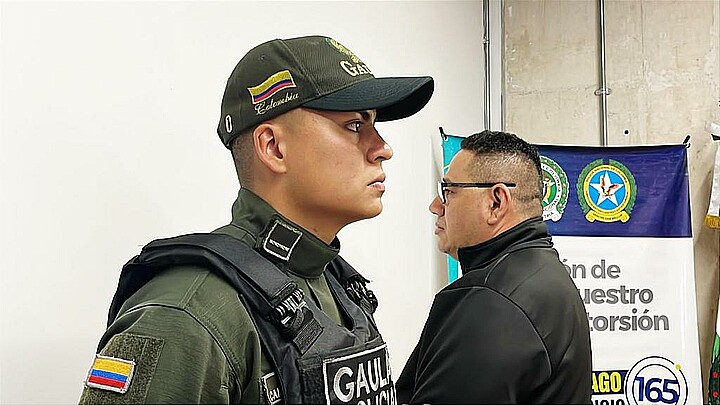Crime
Colombia charges Russian national with laundering terrorist funds
Colombian authorities have accused Sergei Vagin of laundering millions of dollars during the 2021 Colombian protests, allegedly in order to finance terrorist activity throughout the South American country
March 31, 2022 9:03pm
Updated: April 5, 2022 5:11pm
Colombian authorities confirmed this Wednesday the capture of Sergei Vagin, a Russian citizen accused of laundering millions of dollars during the 2021 Colombian protests, allegedly in order to finance terrorist activity throughout the South American country.
The story broke on Thursday after Colombian news outlet RCN revealed the existence of a network of Russian nations who laundered money by “renting” the savings accounts of Colombians in Bogota who received approximately $4,000 for their collaboration.
Vagin was captured in the city of Suba (north of Bogota) and is accused by Colombian authorities of providing instructions on how to “move” that was sent from Moscow into Colombian accounts, Semana reported.
According to the outlet, after the money was deposited into Colombian accounts, Russian operatives would withdraw the funds from ATMs and send it to the “muchachos” – members of the Primera Linea, a group that led the 2021 protests and called for the systematic destruction of security forces and infrastructure.
According to an RCN investigation, Vagin was issued a permit by the Russian embassy that allowed him to move freely throughout Colombia. The document was allegedly signed by the embassy’s third secretary, Nikolay Rykov, who stated the man had no judicial record and was not wanted by the authorities.
Furthermore, sources revealed that U.S. and Colombian authorities have intercepted several telephone conversations in which Vagin tells the victims of the benefits of “renting” their bank accounts.
According to data from the Information and Financial Analysis Unit (UIAF), since 2018 more than $146 million dollars have been laundered by the Russian network.
Faced with these allegations, the Russian Embassy took to Twitter to call the accusations “laughable” examples of “fake news.” Diplomatic officials also warned that the matter could affect bilateral relations and described the situation as a “hoax” meant to discredit Russia.
Regarding Vagin’s arrest, the Embassy said, "we hope that the competent bodies will show impartiality and respect for the law with regard to this citizen of the Russian Federation.”










